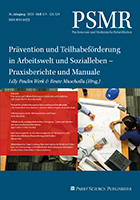When JetBlue flight attendant Steven Slater creatively deplaned earlier this week, many questions arose as to why someone would be willing to give up a steady paycheck during these tough economic times. While this "working mans hero will most likely be questioning his motives as he hands over his lawyers fees, a new report in Perspectives on Psychological Science, a journal of the Association for Psychological Science, suggests that his action may be a sign of trouble for JetBlue and other large companies.
We spend a lot of our waking time at work, so its not surprising that work has an influence on our well-being: Numerous studies have linked general attitudes towards work to mood outside of work and health outcomes such as coronary heart disease. However, psychological scientist James K. Harter of Gallup, Inc. and his colleagues found that employee perceptions of work conditions may also have a big impact on the bottom line of employing organizations.
In this study, the researchers examined data from more than 2,000 business units (e.g., retail stores, factories, sales offices) of ten companies. The data consisted of employee satisfaction surveys, employee retention rates, customer loyalty, and financial performance of the organizations. Analyses of the data were conducted to identify relationships between employee job satisfaction and outcome measures of the organizations.
The results indicate that employee work perceptions predict important organizational outcomesif employees have positive perceptions of their jobs, their organizations benefit via higher employee retention, increased customer loyalty, and improved financial outcomes. Interestingly, the analysis suggests that employee perceptions affect outcomes more than outcomes affect employee perceptions of their jobs.
"One implication is that changes in management practices that improve employee perceptions of specific work situation variables will increase business-unit outcomes, including financial outcomes, the authors note. Additionally, Harter and colleagues offer that one way managers can help boost job satisfaction and help their organization may be to "clarify expectations for employees by helping employees see the ultimate outcomes the organization is working to achieve and how they play a role in achieving those outcomes.























